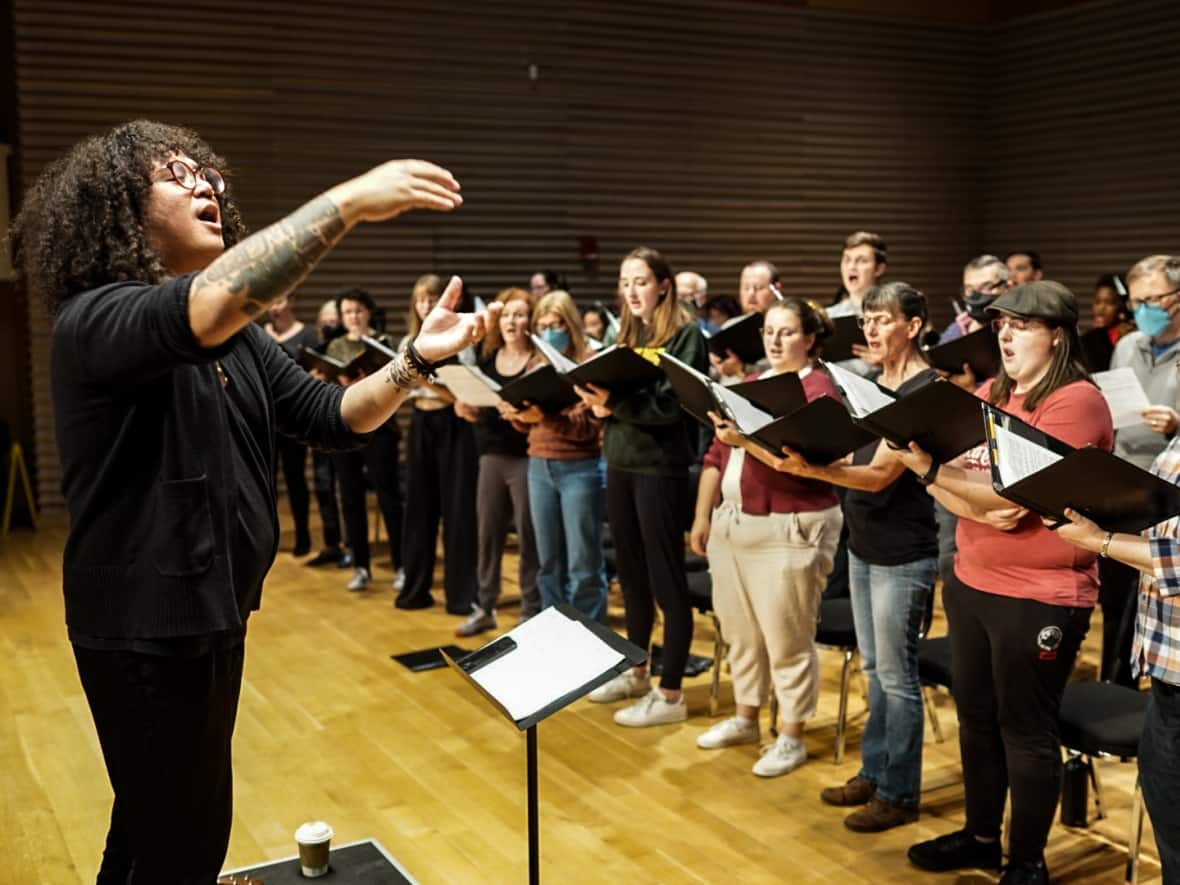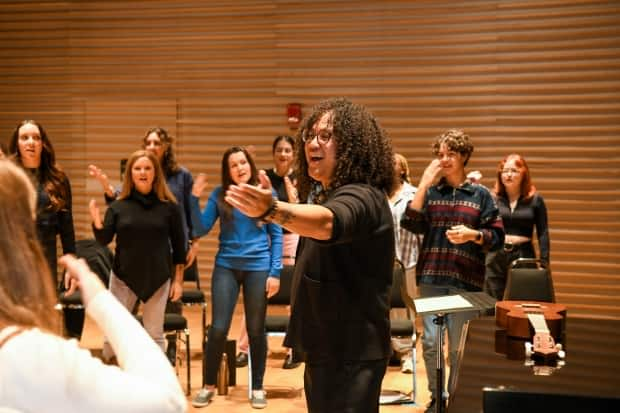How a professor from Hawaii is trying to decolonize the world through music

Can you decolonize the world through music? That's exactly what Jace Kaholokula Saplan, a Hawaiian professor from Arizona State University visiting St. Catharines, aims to do.
Saplan conducted a performance of The Songs We Sing, The Land We Stand On: Decolonizing our Music-Making, with Brock University singers and choir in a concert Friday evening.
"Decolonization is about taking a deep breath, having complete awareness of what has happened so that we can make more informed and joyful steps forward," Saplan said.
As part of the university's 2022 Walker Cultural series, Saplan led the Brock University Choir, Avanti Chamber Singers and the Sora Singers in a concert at the St. Catharines FirstOntario Performing Arts Centre Recital Hall on Friday.
Saplan is the director of choral activities and associate professor of music learning and teaching and choral conducting at Arizona State University.
Brock University associate professor of music Rachel Rensink-Hoff invited him to Canada to provide decolonization in music composition seminars at Brock and local high schools.
The stories Jace told of the experiences of the Indigenous people in Hawaii very much parallel what we have experienced here in Canada. - Rachel Rensink-Hoff, associate professor of music at Brock University
Saplan's teachings focus on reconnecting artists to their roots and heritage with an approach to music composition through the combining of these roots and the world around them.
He says decolonizing is not structured as a complete rejection of everything colonial, but instead it recognizes historical pain and experiences and mixes both western and non-western musical practices.
"When used in a decolonial perspective and a pedagogical outlook, choral music can amplify a perspective towards relationship, towards empathetic understanding of the other, towards the catalyzing community solution," Saplan said.

Rensink-Hoff said she invited Saplan to do a guest Zoom lesson for her students in 2021 for an hour-long lecture as part of a Shared Perspectives series, and then said after... 'I have to get you here.'
She found that the lessons Saplan had to teach her students were invaluable and said "Jace is the master of metaphors...the stories Jace told of the experiences of the Indigenous people in Hawaii very much parallel what we have experienced here in Canada."
"We're a relatively smaller community and to have someone like Jace come into this space and open our eyes, especially for my students it really opens up their world, literally," said Rensink-Hoff. "It's created a lifetime memory and it has so much impact, and that's why these residencies are so important."
Saplan said that the performance at the concert hall incorporated the physicality common in Hawaiian music, with some singers doing traditional dance moves.
He wants listeners to receive his story "so that their development, their growth and their journey is expanded in some way."


